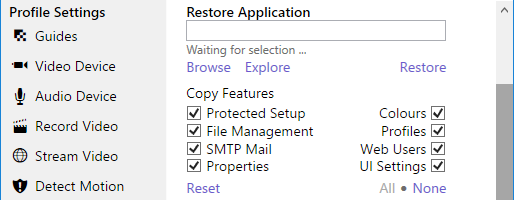Settings Dialog
The Settings dialog uses an inductive user interface to structure the presentation of the hundreds of parameters that manage configurations. Many of these parameters have been designated as profile specific. Profiles allow configuration switching without the need to modify any individual fields. The remainder have been designated as application specific. Application settings define variables that are used throughout the application, regardless of the active profile. They need only be set once and may be maintained for all profiles simultaneously.
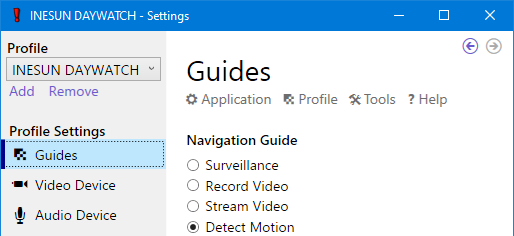
Although there is no limit imposed on the number of profiles that may be defined, at least one profile is required to begin the set up procedure. Furthermore, each profile requires a unique, case-insensitive name. Use the Add Profile dialog to create new profiles, as wells as, to copy and rename them.
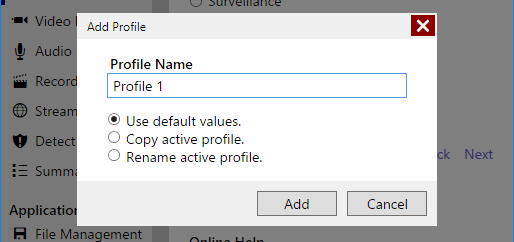
The Settings dialog organizes parameters by feature or function and displays them in pages. These pages are accessible through 2 types of navigation, along side the page selection menu. Journal navigation allows the user to retrace their footsteps; so to speak. On the other hand, guided navigation follows a custom script based on the navigation guide selection.
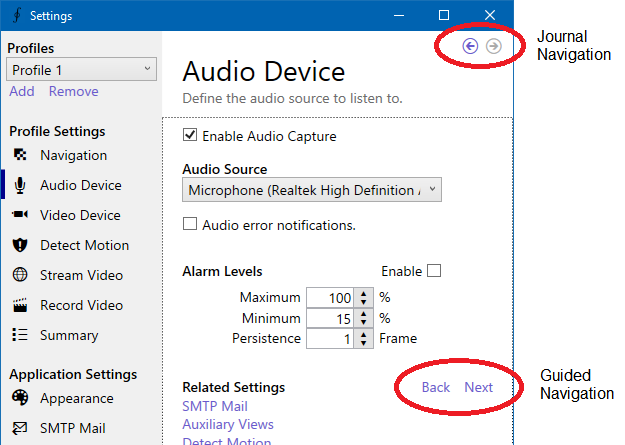
The following pages have been implemented to help manage configurations;
- Summary; configuration listing.
- Search; locate any configuration setting.
- Dashboard; controllers' analytical view.
- Backup and Recovery; manage configuration settings.
The Summary page allows the active configuration to be viewed from a single page. Parameters have been categorized and tabulated for organizational purposes. Although inactive parameters are not always listed, the state the parent feature always is. Double click any list item to navigate directly to its home page. To avoid confusion, always refer to the Summary page when considering changes.
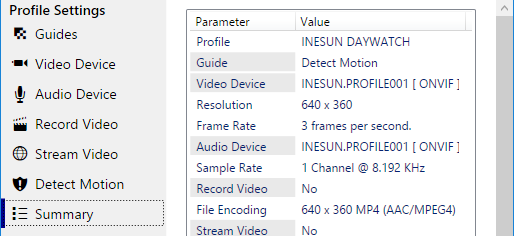
Search
The Search page allows any parameter to be located through a keyword query. For the most part, keywords have been derived from the Settings dialog itself. However, in some cases, they have been appended with functionality to produce more intuitive results. To overcome grammatical and linguistic considerations, a word fit rating has been created. This algorithm only requires partial word matches to produce results. All search results are sorted based on their word fit rating, then alphabetically. Use the page; or pages, keyword to access a complete listing of all configurable pages.
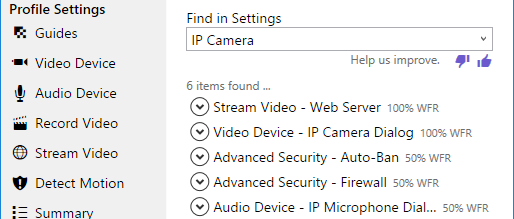
Especially note that a handful of specialized dialogs may appear in search results. For contextual reasons, they are never linked to directly. Rather, the search result will navigate to the page of the parent feature which contains a link to the dialog.
DashboardThe Settings dialog also includes hints, tests and diagnostic tools scattered throughout its many pages. Although most were originally added for internal testing, they have been included in the production release for instructional purposes. The Dashboard page is one of these diagnostic tools. It provides an analytical view of the application and its controllers from a centralized location. For convenience, the remote monitoring tools also includes its counterpart.
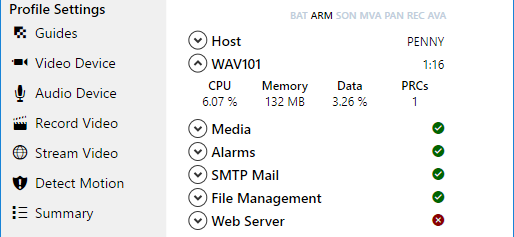
Backup and Recovery
The Backup and Recovery page allows both application and profile settings to be archived and / or shared through files. It also allows features to be selectively reset or imported into other profiles to duplicate behaviour. Note that only the originating computer can decrypt its own passwords. In other words; depending on the file source, all passwords may need to be manually re-entered on recovery. Also note that the Password Protected Setup option is automatically invalidated when an inconsistency is detected in its setting.
